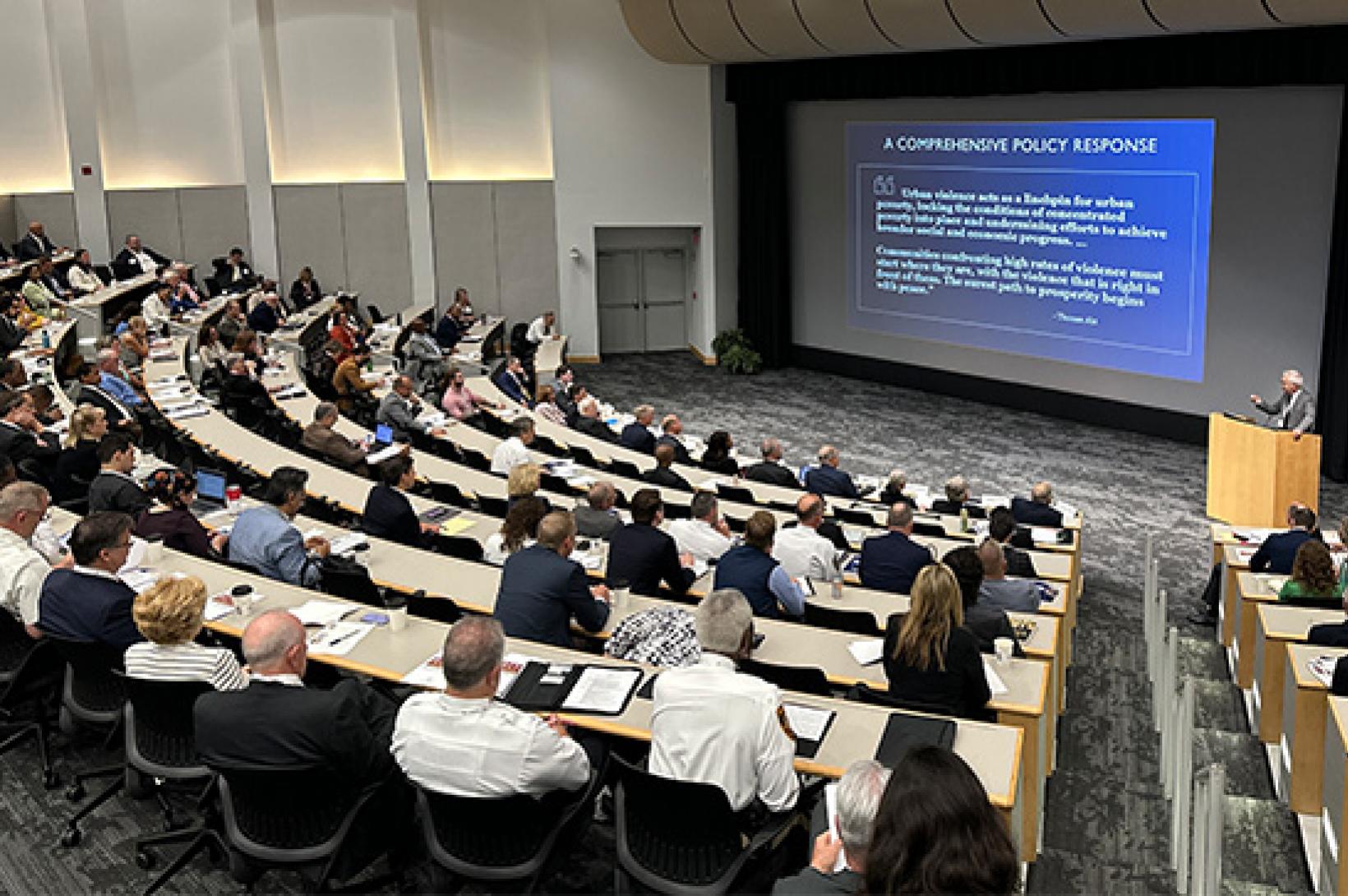
A coalition of government leaders from across the St. Louis metro advanced a plan to reduce homicides in the region by 20% over the next three years. The effort to bring regional leaders together to address the homicide crisis stemmed from calls last year by the metro’s business leadership for a coordinated, collaborative regional action strategy.
“Reducing violent crime in the metro is a top priority and is critical to our efforts to get the region growing again,” said Jason Hall, CEO of Greater St. Louis, Inc. “The business community spearheaded the effort to take action on this crisis and we are pleased to see leaders from across the bi-state metro come together and work collaboratively on a comprehensive solution.”
Business Community Leadership
To inform metro leadership of the need to come together to address the regional homicide crisis, Greater St. Louis, Inc. and the Regional Business Council released the report, “The Need for a Regional Strategy to Reduce Homicides,” which was developed in partnership with the late Dr. Richard Rosenfeld of the University of Missouri-St. Louis, a nationally renowned expert on criminology and criminal justice.
Among the report’s key findings were that the 15-county bi-state St. Louis metro has a homicide crisis; stopping homicide must be the metro’s top priority; the crisis is solvable; and that we need to follow the guidance of experts.
In releasing the white paper in May of 2023, Jason Hall and Kathy Osborn, the CEOs of GSL and the RBC, respectively, noted that: “This is solvable. We can reduce violent crime and help our region reach its true potential if we work as one metro to develop a strategy that is collaborative, employs evidence-based strategies, and sets clear goals we must achieve.”
Advancing Regional Collaboration to Reduce Violent Crime
In the time since GSL and the RBC released the report and called for action to reduce violent crime and enhance public safety, regional leaders, working through the East-West Gateway Council of Governments, have advanced the regional plan to reduce violent crime, culminating with a vote to approve the plan on Wednesday, March 27. The following timeline details the steps taken to move this effort forward:
- Late 2022 – GSL investors call for action to reduce violent crime and GSL engages criminology expert, the late Dr. Rick Rosenfeld, to examine the region’s violent crime problem and develop comprehensive solutions.
- May 12, 2023 – GSL and the RBC release, “The Need for a Regional Strategy to Reduce Homicides”
- May 17, 2023 – The region’s elected officials, police chiefs, prosecutors, mental health experts, and business leaders participate in the regional crime summit at the Washington University School of Medicine, which features national expert on violent crime reduction Thomas Abt of the Violence Reduction Center.
- May 31, 2023 – The region’s top elected officials unanimously vote to work with Abt to develop a violence reduction strategy.
- Dec. 4-8, 2023 – Elected officials, law enforcement leaders, prosecutors, and others gather for a week-long session to develop the violence reduction strategy; Abt and his team release a detailed analysis of homicide cases in the region, showing that 30% of homicides can be connected to individuals in groups representing 0.16% of the metro’s population. Abt’s analysis draws heavily from the GSL/RBC white paper. At the end of the summit, leaders release a plan to reduce St. Louis’ homicide rate by 20% over three years, deploying the evidence-based strategy known as “Focused Deterrence.”
- Jan. 31, 2024 – EWG board votes to move forward with more detailed planning for the strategy to reduce shootings and homicides by 20% over three years.
- March 27, 2024 – EWG board formally adopts plan to establish a regional focused deterrence program with the goal of reducing shootings and homicides by 20% over the next three years. As a member of the EWG Executive Advisory Committee, GSL voted to approve the plan.
Moving Forward
The violent crime reduction plan, called Save Lives Now, employs the crime reduction strategy of focused deterrence, which offers people repeatedly involved in violent crime the choice of solutions like job training, education, mental health care, and drug treatment or targeted enforcement actions for those who continue to engage in violent criminal activities.
